-
Open Letter: Income support must go up before ChristmasNo matter who we are or where we live, we know that our wellbeing is interconnected with those around us. When everyone has what they need to look after themselves and fully participate in their communities, we all flourish. We all want every child in Aotearoa to experience a thriving and happy childhood. But right now, hundreds of thousands of children are constrained by poverty, despite parents’ best efforts. We’ve had a long period of low wages and high housing costs. For decades, governments have underinvested in key public services that build well-being in all our communities, like public housing and income support. Many governments have prioritised policies that help the already well-off, including people who make money from housing. As a result, too many parents are under-resourced, overstressed, and unable to give their children real opportunities to thrive. Now due to the ongoing COVID-19 economic fallout, more families are being pushed into poverty. Unemployment has risen at a record-breaking pace — increasing by nearly a third in the three months to September. Foodbanks and youth homelessness services are reporting huge increases in demand. By Christmas, it’s expected Work and Income will have allocated over 2.5 million hardship grants and advances this year alone. The situation is urgent. As the new government, you can release the growing constraints on individuals, families, and children. We are calling on you to lift one of the biggest limitations on whānau and child wellbeing: not having enough income. During the height of the COVID-19 pandemic, you acted quickly to set up the COVID income relief payment, which is nearly twice the amount of the usual jobseeker benefit. You showed us that you understand that current benefit levels are insufficient and lock families and children into poverty — an issue that affects all of us. Now, we are asking you to apply the same common sense approach to all income support. To make sure everyone, whether they are working, caring for children, living with a disability or illness, learning, or have lost their jobs before or because of COVID-19, has a liveable income. Doing so will help achieve your vision of making Aotearoa the best place to be a child. Before the election, the Labour party has consistently said there’s more work to be done to lift families out of poverty. You now have the mandate and opportunity to do so. Please increase income support before Christmas. Organisations who have signed the open letter are: ActionStation Aotearoa New Zealand Association of Social Workers Auckland Action Against Poverty Auckland City Mission Auckland Women’s Centre Barnardos Belong Aotearoa Beneficiaries & Unwaged Worker Trust Beneficiary Advocacy Services Christchurch Benefit Rights Service Birthright NZ Brainwave Trust Aotearoa CCS Disability Action Child Poverty Action Group Citizens Advice Bureau Community Housing Aotearoa Community Networks Aotearoa Disabled Persons Assembly E Tipu E Rea Whānau Services Equality Network FinCap FIRST Union Gender Justice Collective Gene Now Financial Literacy Trust Generation Zero Heretaunga Women’s Centre Hutt Valley Benefit Education Service Trust (BEST) Kore Hiakai Zero Hunger Collective Lifewise Manaaki Rangatahi Manawatū Tenants’ Union Māngere East Community Centre Māngere East Family Services M.E. Awareness NZ Mental Health Foundation Methodist Alliance Monte Cecilia Housing Trust National Council of Women New Zealand Council of Christian Social Services New Zealand Council of Trade Unions New Zealand Union of Students’ Associations Ngā Tāngata Microfinance NZ Disability Advisory Trust NZ Accessibility Advisory Trust NZEI Te Riu Roa OMEP Aotearoa Pacific Women’s Watch NZ PPTA Public Issues Network: Methodist Church Public Service Association Renters United Salvation Army Save the Children Sisters of Mercy Wiri Social Justice Group of the Auckland Anglican Diocese Social Link St Anne's Pantry St Matthews in the City Te Kupenga Whakaoti Mahi Patunga: National Network of Family Violence Services Te Ngākau Kahukura Tick for Kids Tokona Te Raki United Community Action Network Unite Union Aotearoa Urban Neighbours of Hope VisionWest Waipareira Trust We Are Beneficiaries Wesley Community Action Whānau Āwhina Plunket903 of 1,000 SignaturesCreated by Team ActionStation

-
Protect Porirua East!The proposed rules in the District Plan would enable a huge 25 year housing development programme in eastern Porirua. The project will mean over 1000 state homes knocked down, families displaced and private property acquired under the Public Works Act to free up land for property developers. The plan will see an additional 2000 houses for private sale crammed into the geographically small suburbs of Waitangirua and Cannons Creek. The main theme of the proposed district plan is to allow greater housing density, which is needed, but currently it does so in a way that discriminates on social class. Under the proposed plan the generally middle class suburbs become the low density General Residential Zone and the generally working - class suburbs become the medium density residential zone. This means reduced amenities for the east only! The plan in it's current state doesn't go far enough to tackle climate change. Porirua has an empty city centre that has space for apartment style housing that is walking distance to public transport and amenities. This space should be utilised before digging into our green belt. With over 1000 houses set to be demolished in the East we need to ensure that waste is managed and minimised, and the new builds bring an opportunity to used renewable energy sources. We need a Porirua that all people can get around and the community can live in. Our current housing stock doesn't meet the needs of our disabled and ageing whānau. Building new homes and spaces gives us an opportunity to make sure that everyone is adequately housed, can age in place and is able to participate in community. If you want to make your own submission you can do that here: https://poriruacity.govt.nz/your-council/city-planning-and-reporting/district-plan/proposed-district-plan/571 of 600 SignaturesCreated by Housing Action

-
Be kind to migrant workers - we need pathways to residencyNew Zealand has trebled the number of workers in the country on temporary work visas over the last 15-20 years. There are now at least 250,000 workers here on temporary work or student visas comprising around 10% of the workforce. Entire industries now depend on these workers. Each year, around 250,000 new temporary visas are issued to replace those leaving. New Zealand has traditionally needed around 40,000 new permanent residents each year to replace the loss of people overseas – primarily to higher-paying jobs in Australia. As a consequence, one in four New Zealand-born Kiwis now live abroad and one in four resident Kiwis are foreign-born. The chance of getting permanent residency is the dream that is used to entice workers and students to try their luck in New Zealand. On average around only one in five are able to do so. New Zealand developed an export education system with promises of residency as part of this process. Today there are over 100,000 fee-paying students – making up 15% of all tertiary students who are paying between $20,000 and $50,000 a year for their undergraduate courses. Many schools in upper-class neighbourhoods have also become dependent on foreign fee-paying students. The desperate desire of many of these students and workers to become permanent residents is being exploited by employers, educational institutions, and the government to boost their incomes. Many work visas are also tied to particular employers. This has been a recipe for an explosion of cases of migrant exploitation. Migrant workers feel trapped whilst they are hoping to transition to permanent residency. The situation for those who have come to New Zealand has been made worse by the fact that the government has trebled the number of migrants being given temporary visas of one kind or another whilst keeping the number being transitioned to permanent residence more or less the same. The competition for places has dramatically increased as a result. Successive governments simply kept raising the bar to qualify by increasing the difficulty of gaining a permanent resident visa. Job categories that previously would qualify a migrant to transition to permanent residency were simply eliminated and the qualifying income and skill levels required were increased without any warning. Over the last three years, this was made worse as the Labour-NZ First government secretly cut the number of people being given residency by 25% to around 30,000 a year. Now, even very-skilled and highly paid jobs no longer qualify for residency. It doesn't make any sense. For example, we need teachers and nurses, but they no longer qualify. At the same time the number of temporary visas granted has continued to grow. For employers, the ability to continually access more and more temporary workers willing to work for minimum or sub-minimum wages has also suppressed wages in these industries for all workers. There was never any incentive to raise pay, provide training needed to hire local workers, or put in the extra effort required to get young people used to a work regime. The workers and students here on temporary visas were essentially lied to. They were promised a transition to permanent residency to entice them here, only to have the rules changed on them after they arrived. It was a terrible betrayal of trust by Immigration NZ on behalf of the New Zealand government. We now have tens of thousands of people who have been living, working, and raising families in New Zealand for a decade or more having to renew their “essential skills” or “graduate job search” visas periodically to do so. They are what the government has been calling “normally resident” visa holders who deserve the right to be given a pathway to residency. Many Pacific workers who came here a decade more ago and also made New Zealand their home but may have overstayed their original visas deserve the same chance. We have to collectively take responsibility for the terrible situation that now exists for vulnerable migrant workers living in our communities. The Covid-19 crisis gives us a chance to fix the problem we have collectively created. We can't replace the workers and students now here for the foreseeable future. In fact, it would be a mistake to return to the over-reliance on temporary work visa holders again in the future. We need to create a new “pathways to residency visa” that allows the government to guarantee permanent residence to migrant workers already here once certain conditions are met. As an example, this was done for dairy farm workers in Southland on Essential Skills visas after five years service. We can choose to use the pathways to residency visas to incentivise people to go to the industries and sectors of the economy that need them without tying them to particular employers which has been proven to lead to super-exploitation. It makes sense to offer those workers already here pathways to residency if they desire it.17,309 of 20,000 SignaturesCreated by Anu Kaloti
-
Save the Wellington Music CentreSaturday morning music has been a New Zealand institution since 1957. It provides an opportunity for kids from all sorts of backgrounds, who otherwise wouldn’t be able to afford lessons, a chance to learn an instrument and to develop into life long musicians. Wellington Music Centre is funded through the Ministry of Education’s out of hours programme, providing lessons and affordable instrument hire to any child up to high school, in Wellington. Closing the Centre will prevent kids from discovering their musical passion and make the Wellington music scene less diverse and inclusive. Island Bay School must make efforts to find another solution to any problem it has hosting the Centre. One that continues the long lasting positive impact on kids in Wellington, the cultural capital. We ask the School to keep it open and work with the Education Ministry, the community and other experts on ways to manage their administration problems. The solution needs to allow the children of Wellington access to affordable lessons.578 of 600 SignaturesCreated by Louis Holland

-
End work place exploitation in Tokoroa nowWe want all the citizens of Tokoroa and all who support them to sign this petition to help end exploitation in Tokoroa and set an example for the rest of NZ. Three workers were employed at the two Challenge NZ stations in Tokoroa. They were deliberately exploited and abused over three years by the franchisee and his son. They had to pay money to keep their jobs. They also had to work 15-20 extra hours a week for no pay. OneUnion is a union protecting workers in small workplaces. The union accuses the father and son of extorting $130,000 from these workers. The three workers were at the mercy of these two men because they relied on them for their visas. OneUnion has filed claims against the franchisee and his son in the Employment Relations Authority. The father ‘sold’ the business to his son to avoid the legal consequences. We must not let them get away with it. Their criminal behaviour was extremely cruel. One of the workers was not allowed to leave work when his wife was in labour. A young mother was forced to send her baby to India so she could work longer hours (for free) for the employer. Both were told that if they caused trouble they would be deported. These two men are greedy and ruthless. We as a community must send a strong message that criminal exploitation and lack of human decency will not be tolerated in Tokoroa. This behaviour is not the kiwi way and has no place in Tokoroa. Please read the attached two articles published by the OneUnion that detail the full story. https://thedailyblog.co.nz/2020/09/21/exploiter-extorts-and-blackmails-workers/ https://thedailyblog.co.nz/2020/09/29/casual-cruelty-destroys-young-mums-boss-demands-35000-to-prevent-dismissal-more-evil-than-we-thought/ OneUnion and Migrant Workers Association are working together to get justice for these workers. We advised Challenge NZ of the franchisee’s criminality. We have provided our case file to Challenge NZ and demanded they investigate. WHAT CAN YOU DO? Tokoroa has a proud history of fighting for workers’ rights. We have no doubt the good people of Tokoroa will show the rest of the nation how to win justice for workers who are exploited. Challenge NZ needs to support the franchisee and his son in making this right. A worker would already be in prison if they did a fraction of what these two men did. Blatant exploitation is becoming a normal state. New Zealanders have to step up. Communities have to come together and force exploiters to apologize and make amends. Please sign our petition and get your family and friends to sign it too. *UPDATE* - Tokoroa Rally Against Exploitation Kia Ora All, Unfortunately, the rally for this Sunday (16 November at 1pm) has had to be postponed. But we still want you to come to a meeting the following Sunday at the same time. Since you signed our petition, we have received more cases of exploitation in Tokoroa by unscrupulous employers. It seems workplace exploitation and abuse in Tokoroa is wider than we thought. Most of the victims are having to work long hours for no wages and then threatened or dismissed if they complain. It’s difficult to solve this level of abuse from Auckland. We need your help, We would like to meet with you and other locals. Please come and share with us your advice on what we can do about it. Hopefully we can form a local group to work with us so we can organise a campaign to end exploitation in Tokoroa. End Workplace Exploitation in Tokoroa New Sunday Meeting 1pm, 23 November 2020 Tokoroa Cosmopolitan Club 275 Balmoral Road TOKOROA If you can attend the new meeting or offer any support please email us at, [email protected] Nga Mihi Matt McCarten941 of 1,000 SignaturesCreated by Matt McCarten
-
Help Dame Sue Bagshaw build her Youth HubWe are all concerned about our young people, and regular health services do not always provide the spaces they need. By signing this petition we show our support for Youth Hub Trust chairwoman Dame Sue Bagshaw who has worked her entire life toward the realization of a youth hub in Christchurch. She has helped thousands of young people find a way through difficult periods in their lives. Now the dream is about to come true were it not for some people who do not understand the significance of such a facility and are trying to stop the project. This new facility will provide day support as well as some temporary housing. For years we have understood the mental health issues in Christchurch due to a succession of disasters, the site was gifted to the trust and in my eyes the building will not particularly impact on the surroundings. Every town should have such an opportunity. The facility will include 22 one-bedroom units, one four-bedroom and four three-bedroom units as well as accommodation for two supervisors and a site manager. To be eligible for housing the young people must be in education/training or looking for employment. There will be a healthcare centre, office spaces for 13 different youth-related organisations, private and communal outdoor living spaces, a basketball court, cafe, events centre seating up to 200 people, a rooftop greenhouse and indoor recreation and art space.No alcohol or drugs will be allowed and the Christchurch Methodist Mission will manage the housing. Please sign this petition so the trust can present this to the Christchurch council as support for their plans. https://www.stuff.co.nz/the-press/news/122915886/central-christchurch-residents-fighting-muchneeded-youth-hub/868 of 1,000 SignaturesCreated by Gerrie Ligtenberg
-
Open Letter: Five To ThriveToo many of our children in Aotearoa are missing out on the basics they need to thrive. With political will, we can change this to ensure all of our children have a bright future. We are asking our friends, whānau, and colleagues - Kiwis that care about our children, to sign on to this open letter to ask that every child in Aotearoa gets the five basics they need to do well now, and into the future. To find out more, check out Five To Thrive https://www.fivetothrive.nz/ To keep you updated with the campaign your signature details will be shared with the four organisations leading this campaign; Barnardos, Save the Children, Te Kāhui Mana Ririki Trust, and Whānau Āwhina Plunket.610 of 800 SignaturesCreated by Five To Thrive

-
Consent Education should be compulsory for First-Year Tertiary StudentsIn a world free from sexual violence, students would be able to learn and achieve, without fear, harm or violence. Students would be able to walk through campus, attend lectures, engage in tutorials, knowing that they are valued, respected, and treated equally. Starting tertiary study is an important time in a young person's life, and sets them up for their entire life course 'pipeline'. When a student faces barriers or trauma during their study, it often has lifelong ripple effects and consequences. Recent research shows that 1 in 3 students will experience sexual harm during study [1], and this mirrors Thursdays in Black's own findings, which highlighted that over 50% of participants had experienced some form of sexual harm during study [2]. Research on wider populations shows that in Aotearoa, 1 in 3 women, 1 in 6 men, and 1 in 2 transgender people will experience sexual harm. Research also shows that women, Māori, Queer/Takatāpui, and disabled students are at significantly higher risk of experiencing harm in comparison to other identities, and that 90% of sexually harmful situations happen between people that know each other, for example friends, relationships, colleagues, or family. At Thursdays in Black, our vision is to improve these circumstances, by mandating sexual consent education for first years students. This education will empower young people by giving them the skills to navigate and create their own healthy sexual relationships, help prevent harmful behaviours, and contribute to the ongoing culture change of tertiary institutions. By teaching these skills to students aged 17-20, we will be setting them up with a kete of tools that will benefit them throughout their life, and help make our communities safer. Yet at present, there is no legal requirement for tertiary institutions to offer compulsory courses to teach students about sexual consent. New Zealand institutions currently have a fragmented approach to consent education, with different institutions offering different levels of engagement, different approaches, and some with out any programmes at all. At Thursdays in Black, we believe that Aotearoa can do better, and see that implementing such an education policy as not only urgent, but long overdue. We request that the Minister pass legislation requiring tertiary institutions in Aotearoa to provide sexual consent education to all first-year tertiary students. Such education should be a research-based program, created with and facilitated by subject matter experts and the sexual violence sector, it should engage student leaders, operate on a bi-cultural model that upholds Te Tiriti o Waitangi, and reflect an intersectional approach that respects the disproportionate impact sexual violence has on specific groups. Tertiary institutions, for the most part, remain out-dated and traditional in their thinking -- often reinforcing a rape culture of power imbalances, misogyny, and toxicity. This does not make a safe environment for our tertiary students. Help make education safe. Sign the petition today to call on the Minister to implement compulsory consent courses for first-year students. 1. Unpublished Phd Thesis by Kayla Stewart, for a preliminary discussion of her findings, see https://www.stuff.co.nz/national/113090659/a-third-of-women-university-students-report-being-sexually-assaulted-what-do-we-owe-them 2. In 2017, Thursdays in Black Aotearoa conducted a report titled ‘In Our Own Words’, which details the extent to which tertiary students experienced sexual violence prior to, and during, their studies You can find it here: https://library.nzfvc.org.nz/cgi-bin/koha/opac-detail.pl?biblionumber=5557922 of 1,000 SignaturesCreated by Jahla Lawrence
-
Supporting paid leave for women after abortionsThe United Nations 2030 Agenda for Sustainable Development has a focus under Goal 5 on safe abortion as part of protecting “human rights and promoting gender equality and the empowerment of women and girls”. Target 5.6 seeks to ensure “universal access to sexual and reproductive health and reproductive rights as agreed in accordance with the Programme of Action of the International Conference on Population and Development and the Beijing Platform for Action and the outcome documents of their review conferences”. We believe that the Holiday Amendment Bill act could be changed to better suit the goals of the UN 2030 Agenda for Sustainable Development and to better support women in Aotearoa. We hope you consider our suggestion as young people and women going into the workforce. As a society, we believe we need to do more to ensure women have equal rights and have equitable working conditions. Thank you for helping us in our fight to remove the word ‘unplanned’ from Ginny Anderson’s Holiday Amendment Bill. Ngā mihi, Lorna Hallett Renee Hamilton Kate Chu Athena Kapralos Ella Murdoch Evie Harrington Bella Redshaw Bintou Fiti-Jaiteh Natasha Taylor Valora Leilua-Tiatia Tia-Rhiena Martin-Upton Nicole Askari Ruby McGovern Sophie Irving187 of 200 SignaturesCreated by Lorna Hallett
-
Support families in need. Extend the Winter Energy PaymentAs New Zealanders, we believe in justice and compassion. We want everyone to have the opportunity to thrive. But, right now, hundreds of thousands of people in our country are living in poverty. Despite our differences, we share a responsibility to make sure everyone has a decent standard of living and the same chances in life. Poverty in New Zealand affects people of all ages and situations – children and their parents, young adults, people in and out of work and people with disabilities. The stress that comes with poverty can erode people’s mental and physical health. Showing compassion as a society means making sure no-one has to endure the harms of poverty. On October 1, 2020, the Winter Energy Payment that is provided to people on government income support, to assist with heating a home, is due to expire. This will cut the already low incomes for people locked in poverty by $63 a week for couples and $41 a week for an individual. But as research has shown, $40 - $60 less per week means not being able to go to the dentist or doctor, not being able to afford emergency bills and not being able to pay for kids to participate in extracurricular activities like sports, art or volunteering. At a time where food banks are reporting record demand and the number of people needing government income support had its biggest jump in 24 years in April, the government needs to show some compassion. By permanently extending the Winter Energy Payment, the government can help make it possible for everyone to do well.861 of 1,000 SignaturesCreated by Nick Stoneman
-
Leave no-one behind: Campaign to address digital exclusionHave you or someone you know ever tried to fill out a government form online? How about doing that on your phone? And uploading documents to it? What if your internet connection was limited? Or English wasn’t your first language? Or you were vision impaired? Or didn't have a credit card? What if you needed help to understand, and what you really wanted was someone to talk to? Consider the frustration this causes you and what it looks like when you’re made further vulnerable as you stare into the digital divide. The digital-only or digital-first approach being embraced by government agencies is excluding some of Aotearoa’s most vulnerable people and communities. This is unacceptable. We want to see people’s needs put at the centre of public services and are asking our representatives in Parliament, to pledge to ensuring this is the case. Interacting with government services is often about accessing rights and entitlements and it’s important that there aren’t any barriers in the way. Digital services are not the right response for all people or in all circumstances. There needs to be genuine choice for people about how they can interact - whether online, face-to-face, through others or by phone. It is critical that as a country we don’t allow the digital transformation of public services to further entrench disadvantage and vulnerability. We have written to politicians asking them to commit to addressing digital exclusion so that no-one is left behind or left out because they can't or don't wish to engage online. As part of this campaign, we are also seeking funding to cover the transfer of costs that has resulted from government agencies closing up shop in communities and sending people to get help from CABs, including to get paper copies of forms. Join us in this call to address digital exclusion so that we leave no-one behind! This campaign builds on the findings and recommendations of our report, ‘Face to Face with digital exclusion’. You can read the full report here: https://www.cab.org.nz/what-we-do/social-justice/digital-exclusion/8,047 of 9,000 SignaturesCreated by Citizens Advice Bureau New Zealand Ngā Pou Whakawhirinaki o Aotearoa

-
Save our school librariesThe School Library Association of New Zealand Aotearoa (SLANZA) is launching a nationwide campaign to highlight the plight of our school libraries. SLANZA is deeply concerned about the demise of school libraries in Aotearoa. It is estimated that of the 2500 schools in New Zealand only 900 have a library. Stuart McNaughtons recent report entitled “The literacy landscape in Aotearoa New Zealand” states that 52% of 15 year olds only read if they have to and 28% think reading is a waste of time. Yet his report did not mention School Libraries once and we know from international research that schools with a well-resourced library and specialist library staff positively impacts learning outcomes across all year levels. Our libraries are being closed, relocated to hallway cupboards, are having budgets slashed. We have low decile high schools trying to raise literacy rates but can only fund their library $1000.00 a year to operate and are buying books from Op Shops to stock the shelves. These stories are not acceptable in New Zealand. SLANZA believes that all school students in New Zealand, at every level of their education, should have access to effective school library services that will support their reading and learning. We plan to promote the value and necessity of every student having access to a school library, supported by a specialist librarian with a budget and hours to provide a high-functioning learning environment within all school communities in Aotearoa New Zealand. The Ministry of Education will mandate every student to have access to a school library staffed by specialist school librarians and is Ministry of Education funded. We know school libraries make a difference for our students for their well being, hauora, their learning outcomes, their ability to critically analyse and their growth in empathy. School libraries transform and we in this campaign will be informing our nation of the lack of funding, space and staffing within our school libraries. We want the government to listen and to act, so our school libraries can be resourced fully to continue to transform the lives of all of our students. Our campaign will be launched on September 1st and is called “School Libraries Transform.” Please refer to our website for further information pertaining to our campaign. http://www.schoollibrariestransform.org.nz/6,949 of 7,000 SignaturesCreated by Sasha Eastwood-Bennitt

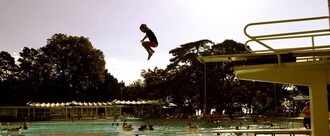

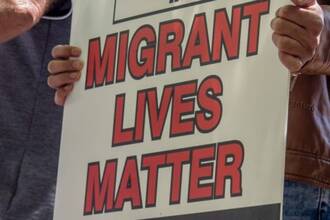
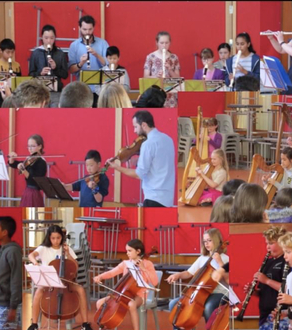
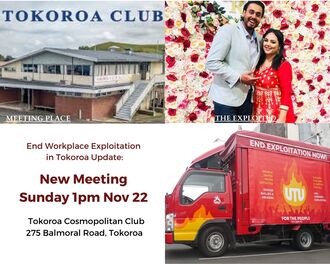
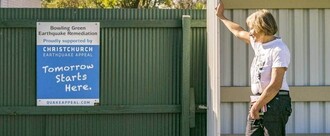
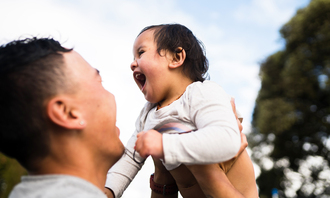
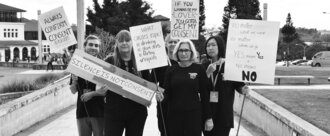


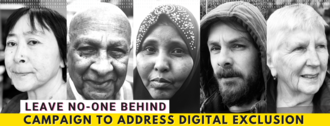.png)
